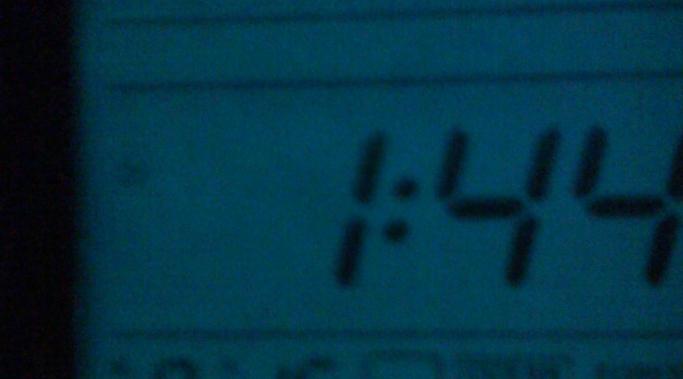Blogs
I am a 45-year-old woman on a journey of recovery from anorexia. I also am: a writer, a graduate student studying for my master's degree in English Composition and Communication at Central Michigan University, a wife and mom to my beautiful cat, Aliena, and a very curious person!
I write about my recovery from the perspective of someone who developed an eating disorder later in life at the age of 41.
Sometimes you need a temporary solution for problems you're working on in therapy.
Getting sleep has to be a priority if you want to fight anxiety and find relief. It's definitely a matter of quality but studies have shown that quantity plays a big part in that: How well rested we feel after a night's sleep.
For optimal health and well-being Labcoats 'R Us will tell you we should all be getting between 7-8 hours sleep a night; A lovely thought dreamed up by people who've clearly never gone 4 days without sleep and found themselves wondering why the walls are slithering.
Visit any preschool in America today, and the message is universal--be nice to everyone. Unfortunately, that sentiment seems limited to the 5 and under scene. Mental illness stigma, and the hate of anyone too different is a lesson learned earlier than parents like to believe. I shouldn't have to teach my child about mental illness stigma. But I do.
Normally I try to grab the reader's attention in the first few lines of the piece so that you'll want to read the rest. Something snappy, touching or pithy. Normally I try to make sure it's an interesting subject. Usually I try to provide some sort of universal appeal to the piece or at least a good quip.
But today, quite frankly, I'm talking about me.
One of the most persistent myths about dissociative identity disorder (DID) is that people with it are schizophrenic. Schizophrenia and DID are generally considered synonymous with each other when, in fact, they're two entirely different disorders. There's no relationship between dissociative identity disorder (formerly known as multiple personality disorder) and schizophrenia at all. People more educated than I could write entire books about the differences between these two chronically misunderstood disorders. I focus on what I see as the dead giveaway: the issue of identity.
Our society places a high value on making money and our work. With depression or bipolar, one can be made to feel like a failure. You can feel worthless and ashamed at your inability to work. You can feel terribly ashamed when through a manic or depressive phase and you realized you have spent thousands of dollars. If you have set up a safety net
For over 15 years, Heather Levin struggled with Seasonal Affective Disorder (SAD), a type of depression that strikes mainly during the winter months. To help, Heather developed a list of reliable, inexpensive strategies for treatment of Seasonal Affective Disorder (SAD).
In an email conversation I had last week with someone who also has Dissociative Identity Disorder, the issue of hospitalization came up. I was impressed by this person's pro-active perspective. He appeared to accept the fact that inpatient stays are sometimes a part of the recovery process. Historically, my attitude has been much different. But I've decided his forward-thinking approach is healthier.
The fear's on different floors, locked in boxes, scattered in the places, worn out spaces I don't go. And if that's true, if it's everywhere and nowhere and exactly right here, where I don't want to look - then it's probably a big thing. Bigger than me. Maybe bigger than I should mess with:
But I want to understand.
Don't you?







